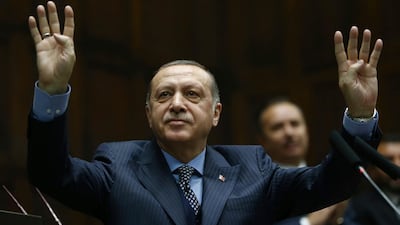Turkish prosecutors on Friday ordered the seizure of assets belonging to a Turkish-Iranian gold trader who is giving evidence in the trial of a banker accused of helping Iran evade American sanctions.
A day earlier Reza Zarrab implicated Turkish President Recep Tayyip Erdogan in the plot, telling a New York court that the then prime minister had approved some of the sanctions-breaking financial deals.
Zarrab is appearing as the prosecution’s star witness in the trial of Mehmet Hakan Atilla, an executive at Turkey’s state-owned Halkbank, who has pleaded not guilty in Manhattan federal court.
The case had strained relations between Washington and Ankara even before Zarrab implicated Mr Erdogan. The president has denied that Turkey breached any sanctions and dismissed the case as politically motivated.
On Friday the Istanbul prosecutor’s officer announced that Zarrab’s assets would be confiscated, according to Turkish state media, as part of an investigation into the trader.
Binali Yildirim said he hoped the 34-year-old would “turn back from his mistake”.
He added: “This court case has stopped being judicial and became completely political, with the sole aim to corner Turkey and its economy.”
Zarrab was arrested last year after arriving in Florida for a family holiday at Disney World.
He began giving evidence on Wednesday, after striking a plea bargain last month, describing the complex financial arrangements that were used to allow Iran to free up cash held in Turkish bank accounts.
Zarrab said he used a string of front companies as well as his experience as a gold dealer to disguise what were essentially sanctions-busting cash transfers as legal gold deals.
On Wednesday, he told the court he offered Zafer Caglayan, then Turkey's economy minister, a cut of the profits in return for his help. That came to some $59 million in bribes, he said, as the court was shown a spreadsheet which was used to keep track of the huge sums of money.
Zarrab said the scheme shifted from gold to phantom food sales when the US closed a loophole in 2013.
The court heard audio recordings of conversations with Atilla while Zarrab testified that the banker was initially unclear about how the new arrangements would work.
However, on Friday, Zarrab explained that it was Atilla himself who identified a way to move money from one company to another to hide the link to Iran. He also testified that it was Atilla who found another loophole allowing Iran to use proceeds from sales of gas - but not oil - to buy gold.
The evidence has played out before a courtroom packed with Turkish journalists. Not only does the trial threaten major repercussions across Turkey’s financial and political spheres, but Zarrab is a prominent figure at home.
His colourful lifestyle, married to a pop star, was frequently splashed across magazines. And he is reputed to own 20 properties, a personal submarine and gold-plated pistol.
That was not enough for one juror, however.
Richard Berman, the US district judge hearing the case, was forced to dismiss one man for sleeping - “really sound asleep, not just dozing,” he said - throughout the testimony on Friday afternoon.
Zarrab’s evidence will continue on Monday, providing more opportunities to embarrass Mr Erdogan’s government.
Yet the case could still strengthen his grip on domestic politics.
“This will bolster his claim that he is fighting an independence battle against foreign enemies,” said Halil Karaveli, editor of the Turkey Analyst, a policy journal told the Associated Press.
“If there is going to be any political impact, I suspect it will actually help in the electoral sense.”

